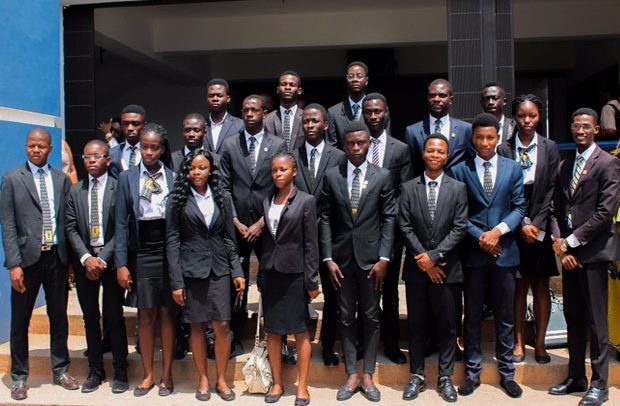Beneficiaries of the VCEF from UPSA in a group photograph.
The University of Professional Studies, Accra (UPSA) has raised funds to support needy and brilliant students in their pursuit of higher education.
At the first anniversary of the Vice-Chancellor’s Endowment Fund (VCEF), management of the university together with corporate institutions, students, alumni and other stakeholders raised funds to support Ghanaian students who seek to pursue tertiary education but lack the requisite funds to do so.
The ceremony had in attendance the Vice-Chancellor of the University, Prof. Abednego Oko Amartey; Commissioner of Police, Akuffo Dompare, the special guest of honour; among other high-profile dignitaries.
In his remarks, Board Chair of the VCEF, Millison Narh, disclosed that the goal of the VCEF was to improve access to university education in Ghana by enabling needy and brilliant students receive free undergraduate education at UPSA. He said the fund had targeted GH¢100 million as its seed capital within four years.
The VCEF forms part of the university’s core value of service which was established for receiving third party donations as well as contributions from the university, with the aim of generating operating income for scholarship.
The VCEF, among other objectives, seeks to identify and support brilliant and financially-challenged Ghanaians who desire an opportunity to undertake tertiary education at UPSA.
It also seeks to promote co-curricular activities by supporting talented and financially challenged students such as athletes and creative students to pursue academic programmes at UPSA.
This year, the VCEF is targeting about 20 students as compared to a single student when it was first inaugurated last year.
Proceeds from the fund would cover full or part scholarship for newly admitted undergraduate students, continuing undergraduate students and continuing students pursuing professional courses. The scholarship would also cover the marginalised and disadvantaged in our society as well as the talented and needy students.
BY: Nii Adjei Mensahfio


